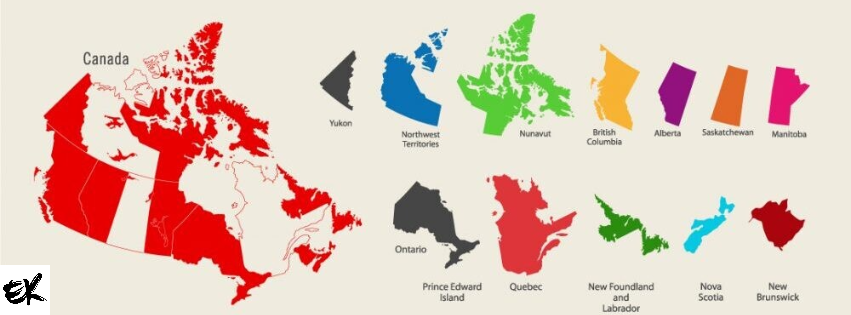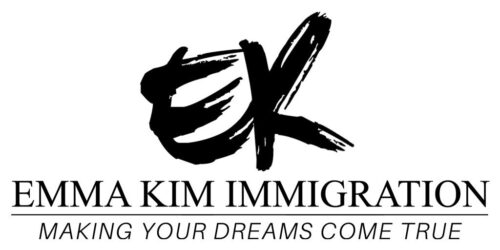
Express Entry (EE) is an online immigration application system. It allows people to submit a profile and be considered as a skilled immigrant. Candidates with the highest rankings are invited to apply for permanent residency.
Do I Qualify for EE?
You qualify for Express Entry if you meet the eligibility criteria for the Skilled Worker program, Skilled Trades program, or Canadian Experience Class.
How are EE profile points determined?
Your Express Entry profile will get points based on:
- Your education level;
- Your abilities in English and/or French (Canada’s 2 official languages);
- Your work experience and skills;
- Your age;
- If you have a job offer in Canada; and
- Your spouse’s education, language abilities and work experience.
Additional points are also awarded if you have completed a college or university program in Canada or if you have a provincial nomination.
This chart outlines the points you can get for each category. Please note that EE points are different from the Federal Skilled Worker point system.

How the Provincial Nominee Program (PNP) works
This program is for workers who:
- have the skills, education and work experience to contribute to the economy of a specific province or territory
- want to live in that province, and
- want to become permanent residents of Canada
Each province and territory has its own “streams” (immigration programs that target certain groups) and requirements. For example, in a program stream, provinces and territories may target:
- students
- business people
- skilled workers
- semi-skilled workers
Understand the application options
How you will apply depends on which Provincial Nominee Program stream you’re applying to. You might need to apply using the paper-based process, or by the online process through Express Entry.
As part of the process, you will have to pass a medical exam and get a police check (certificate). Everyone must have these checks, no matter where they plan to live in Canada.

Can I be a sponsor?
To sponsor a family member, you are required to meet several requirements such as being:
- a Canadian citizen or permanent resident of Canada
- 18 years of age or older
- able to support the sponsored person for several years
Who can I sponsor?
- Spouses and common-law partners
- Dependent children
- Parents and grandparents
There are exceptions to this rule, however, and it may be possible to sponsor a non-immediate family member (for example, a sister, niece, or uncle) if:
- you do not have any other immediate family members you could sponsor, or
- you have legally adopted them and they meet the definition of a dependent child.
What are the income requirements to sponsor?
As a sponsor, you are required to sign a Sponsorship Agreement with your sponsored family member. This is a commitment by you to provide financial support for the basic needs (food, clothing, shelter, and health needs not covered by public health services) of the person you are sponsoring.
For some types of sponsorships, you will also have to meet or exceed the Low Income Cut-off (LICO), for instance if:
- you are sponsoring a spouse or partner who has a dependent child and that dependent child has one or more children of their own, or
- you are sponsoring a dependent child who has one or more dependent children of their own, or
- you are sponsoring a parent or grandparent.

Application Requirements
The following are required to apply for a study permit:
- Your official Letter of Acceptance from the school in Canada.
- A valid passport or travel document issued by your country of citizenship.
- Evidence of sufficient funds. You must provide proof that you have enough money for your tuition fees and living expenses, and to financially support any family members.
- A passport-sized photo of yourself that meets Immigration, Refugees and Citizenship Canada (IRCC) specifications.
- A statement of purpose of study/study plan letter that you write.
Other supporting documents may include:
- Proof of immigration medical exam
- Police certificate
- Custodianship declaration
- Proof of tuition payment
- Country-specific documents
Student Direct Stream:
You may be eligible to apply for your study permit through the Student Direct Stream depending on where you’re living. This stream has additional application requirements to what is stated above. One of the requirements of this stream is proof of tuition payment for your first year of study.

How do I come to Canada as a temporary foreign worker?
To come to Canada as a temporary foreign worker, you must get a work permit. There are different kinds of work permits.
If you are not a Canadian citizen or permanent resident, you need a work permit to work legally in Canada.
In general, you need to apply for a work permit from Immigration, Refugees and Citizenship Canada (IRCC) or a Canadian visa office before you come to Canada. For these work permits:
- You need to get a job offer from a Canadian employer before you apply.
- The employer must apply for a Labour Market Impact Assessment (LMIA) from Employment and Social Development Canada (ESDC).
- ESDC will decide whether the employer can hire a foreign worker to fill the job.
There are special work permits for some kinds of workers. For example, there are special work permit programs for home child care provider and home support worker, business people and agricultural workers.
If You Are in Canada
If you are already in Canada, you may be eligible to apply for a special type of work permit.

Eligibility
You must meet some basic requirements to get a visitor visa. You must:
- have a valid passport
- be in good health
- have no criminal or immigration-related convictions
- convince an immigration officer that you have ties—such as a job, home, financial assets or family—that will take you back to your home country
- convince an immigration officer that you will leave Canada at the end of your visit
- have enough money for your stay (The amount of money you will need depends on how long you will stay and if you will stay in a hotel, or with friends or relatives.)
You may also need a medical exam and letter of invitation from someone who lives in Canada.
Some people are not allowed to enter Canada
Some people are not admissible to Canada, which means they are not allowed to enter the country. You can be inadmissible for several reasons, including being involved in:
- criminal activity
- human rights violations
- organized crime
You can also be inadmissible for security, health or financial reasons.
